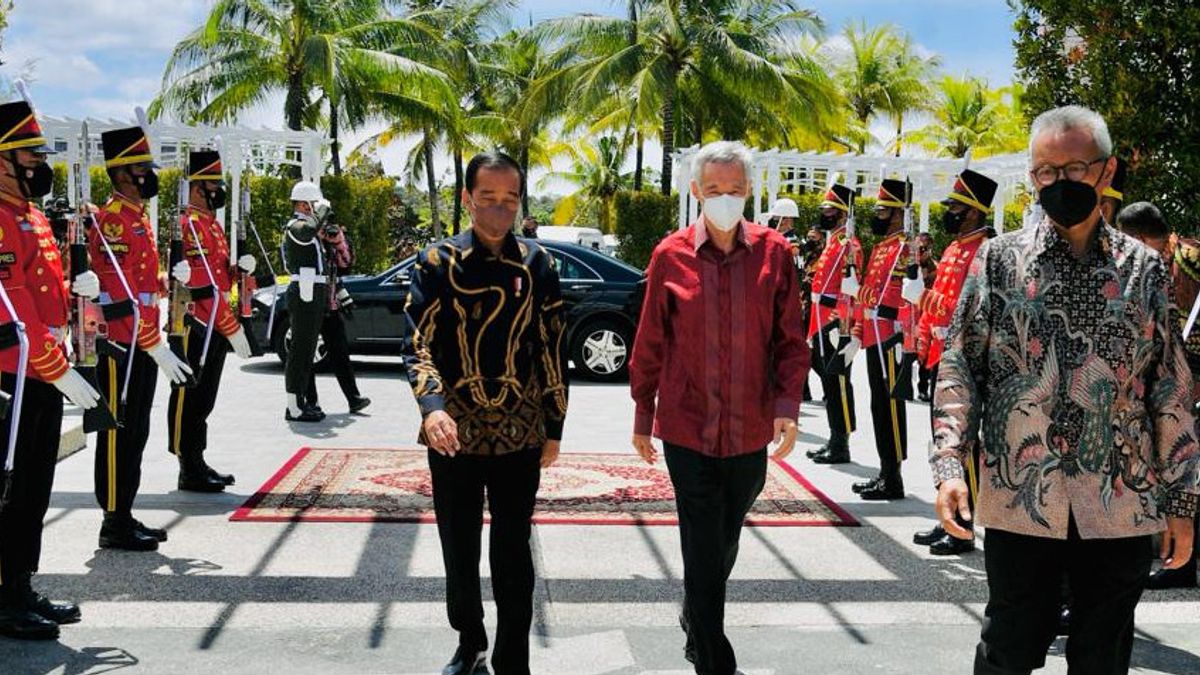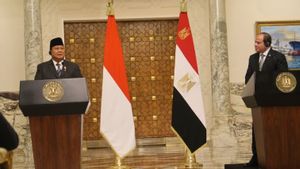JAKARTA - The NasDem Party faction in the DPR has agreed to the ratification of Indonesia's extradition treaty with Singapore. However, regarding the air space agreement or Flight Information Region (FIR) and Indonesia's defense area with Singapore, NasDem has a hard time agreeing.
"For me, I agree (ratification of the extradition treaty), because so far, Indonesia has been hampered by the absence of an extradition treaty with Singapore. Then Singapore has become a haven for people who have taken refuge there," said Head of the NasDem faction, Ahmad Ali. told reporters, Thursday, February 3.
Ali first commented on the extradition treaty. He said, there were many allegations that Singapore was being flooded with criminal proceeds from Indonesia. In addition, many parties who have legal problems with Indonesia are hiding in Singapore.
"Even our country's law enforcers can't do anything when our law enforcement officers meet the criminals there, they can't do anything because of that (there was no extradition). On the (extradition agreement) side, it's fine and I agree, so that then there will be no boundaries, so that one country with another does not become a hiding place for any criminals," explained the member of Commission III of the DPR.
Meanwhile, for the air space agreement and defense matters, NasDem provided notes regarding the 2007 Defense Cooperation Agreement or the DCA MINDEF Joint Statement. The NasDem faction, said Ali, had a hard time agreeing to this agreement.
"What the President is asking is how to control our airspace, which is still partially controlled by Singapore. Yes, it is indeed a bit difficult as a sovereign country for Indonesia of this size, then Singapore's air space is (partially) controlled," said Ali.
NasDem considers the extradition treaty to be more favorable to the Indonesian side. This is because Indonesian officials can enforce the law in Singapore. But regarding defense, said Ali, NasDem sees the agreement as beneficial for Singapore because it can conduct military exercises in Indonesian territory.
"Of course we hope that both (extradition-air space) can be carried out, but if later this must be separated, yes we take one (extradition), while negotiating the airspace," he concluded.
Previously, the Government stated that the extradition treaty with Singapore would narrow the space for criminals in Indonesia to escape. Moreover, Indonesia already has agreements with partner countries in the region, including Malaysia, Thailand, the Philippines, Vietnam, Australia, the Republic of Korea, the People's Republic of China, and Hong Kong.
"This extradition agreement will create a deterrence effect for criminals in Indonesia and Singapore," said Minister of Law and Human Rights Yasonna Laoly on Wednesday last week. Yasona signed the Indonesia-Singapore Extradition Agreement, in Bintan, Riau Islands, Tuesday, January 25, 2022. Meanwhile, the Ministry of Transportation revealed the reason for the government to delegate the management of airspace (FIR) below 37,000 feet to Singapore. Ministry of Transportation spokeswoman Adita Irawati said the delegation of FIR spending to Singapore or the FIR agreement was aimed at protecting aviation safety.
"Our delegation must do it because of flight safety considerations," Adita said in a written statement, Monday, January 31, 2022.
From the agreement, he said, in fact only 29 percent of the area was delegated to Singapore navigation operators, namely the area around Changi Airport. Even in the 29 percent of the delegated area, there are areas that are still served by AirNav Indonesia for flight purposes at Batam and Tanjung Pinang Airports.
The English, Chinese, Japanese, Arabic, and French versions are automatically generated by the AI. So there may still be inaccuracies in translating, please always see Indonesian as our main language. (system supported by DigitalSiber.id)













